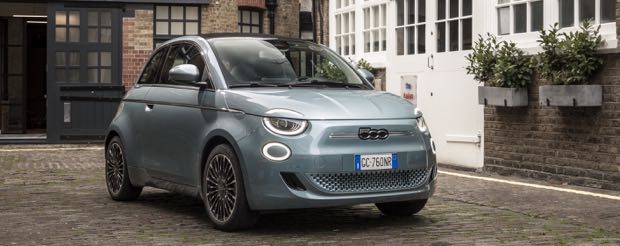The new Fiat 500 electric model coming in a few weeks from £19,995 will self-regulate its battery use.
Its range of up to 199 miles includes a monitoring system to cut down secondary power use and provide maximum range when it has about 30 miles left and it can be substantially recharged in 35 mins with a rapid box.
The changing working arrangements mean some motorists could get back money from their car insurance, says comparethemarket.com .
The broker says home workers who use cars less or don’t commute anymore can ask for a refund or mid-term adjustment but those returning to work and using cars more often should tell insurance companies and ensure they’re covered for the commute.
Thefts of expensive catalytic convertors cut from cars has increased 50% over lockdown.
The RAC and Ageas, one of the UK’s biggest car insurers, said claims have risen to account for about a third of incidents reported as criminals strip the parts for their metallic value as scrap and they’re so sophisticated they take just minutes with the right tools for the theft.
As schools across the UK return following months of COVID-19-enforced disruption, new research reveals that ongoing infection fears are predicted to significantly increase car usage on the daily school run, creating more traffic congestion and toxic air pollution around the school gates.
According to a nationally-representative survey of 250 school leaders, conducted by school transport technology specialist Kura, nearly one in four school leaders (23.2%) believe that infection fears are set to drive increased car usage amongst parents, rising to 35% in independent schools.
Run-out models of the current Peugeot 308 from June will be fitted with analogue speedometers, the company says as it struggles to cope with the microchip shortage affecting digital speedometers.
The car is due to be replaced in the autumn and the newcomer will be getting digital speedo instruments, a Stellantis spokesman has told Reuters.
Amid many difficulties posed by the Covid-19 pandemic, demand for electric vehicles increased and CO2 emissions fell further than before.
According to data collected by JATO Dynamics in 21 countries across Europe, the volume weighted average CO2 emissions (NEDC) of vehicles registered in 2020 was 106.7 g/km – 12% lower than the average recorded in 2019.
Europe’s automotive component suppliers want Artificial Intelligence technology incorporated into existing type-approval requirements.
It is concerned that AI might be treated separately to other systems and would duplicate certification, testing and checking.


